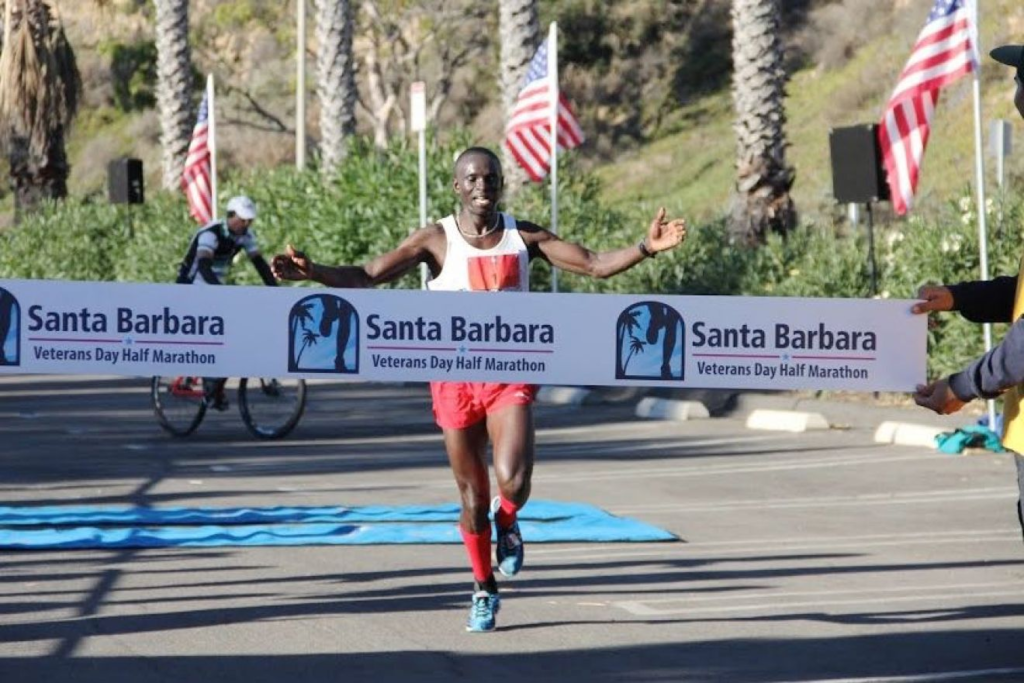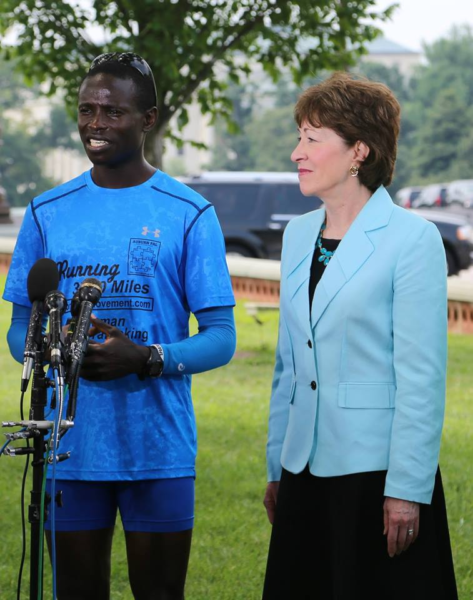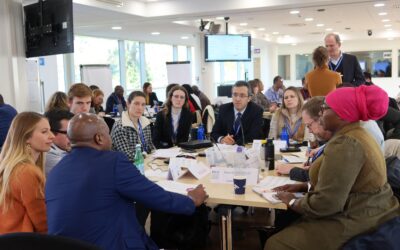Editor’s note: With the Olympics focusing on track and field events last week, we are privileged to share a survivor’s story about how human trafficking can happen to anyone, even a professional athlete.
My name is Moninda Marube and I am a Kenyan national currently living in the U.S. I have chosen to share my story with you because most of us human beings relate and learn better through other people’s accounts and experiences.
My story starts from the time I arrived in Texas ̶ not through coercion, deception or any other alarming means, but through my own voluntary way. As a professional runner for more than 12 years, I had travelled to several other countries and the U.S. was not an exception.
I came to the United States through an invitation for a three-month series of road races before I could go back to Kenya to renew my energies. I did my first race within three days, and I won. At a friend’s recommendation I decided to move to Minnesota on the premise that there I would get professional attention and the chance to train among other Kenyan runners. That was an opportunity I couldn’t say no to.

I arrived in Minnesota and found other Kenyan runners. Together, we were six (four men and two women). The house was a condo with two bedrooms, but the boss had rented one to his college friend, and he and his wife turned the basement into their private quarters. So, for the rest of us, we had to figure out how we could spread ourselves between one room and the sitting room.
There were no human trafficking and modern-day slavery signs on the wall until we went out to our first race. I noticed some anomalies. First, our manager gave us running chips and told us to run with them past the start then discard them. Second, he admonished us from engaging in conversations, saying in Swahili: “watu hii nchi ni waongo” (people in this country are liars). The same things kept repeating in almost every race until I became curious and needed to know why he did not want us to engage in any conversations.
For those of you who are not runners: when one is a professional runner and has been invited to a race through their managers, most races provide the runner with accommodation and food. Some races give appearance money, transportation money which may include plane tickets or gas if you are driving far. An unscrupulous manager like the one I had, would not only keep all that information away from us (his runners), but would also double charge us for the same amenities. He would also submit ghost runners to these races, collect their packages, and have us run the chips through the start line to justify that they were there and that they had crossed the start line.
Some other ways our manager would exploit us were through confiscating our traveling documents, alleging that those were very important documents that we risked losing if we did not let him keep them for us. He knew that we could not run away while he was at work by keeping the passports. Every time he left the house, he knew that we did not have any way to communicate with the outside world because the only computer in the house was secured with a security password and camera.
Even though it was not apparent to the outside world that we were being exploited in that house, for us it was apparent. It started with presentation of a nine-page document to sign which we were not given sufficient time to go through. Second, even though we were winning races, appearing on television and in newspapers, our bills in that house far exceeded what we made from racing. We had to continually ask for money for food as we kept digging ourselves deeper in debt.
One evening while we were at the store buying groceries, we met a gentleman who recognized us as runners. Since our manager was always against us having any conversation with strangers, I was keen to take his number. I let one day go by and told my manager that I needed my passport to apply to college. He wasn’t smart enough to think it through, and that very morning, I ran to a neighbor’s house a few yards down the road and asked him to phone the guy I had met at the store.
That would be my escape from the house and human trafficking, and a safe return to Texas. I’m currently working on a book with a detailed account of my experience.

Moninda has run coast to coast to raise awareness, speaking at the end of his run with U.S. Senator Susan Collins of Maine.
Here are some tips to help you avoid what happened to me:
Be Aware: Human trafficking is REAL and deeply woven into our social fabric. In modern times, people are not necessarily in physical shackles, they are not necessarily foreigners, they are not necessarily coerced or bundled into vans to labor farms. Modern-day exploitation occurs in more subtle ways that are so hard to detect.
Pay Attention: There is a saying that goes, “not everything that glitters is gold.” When someone entices you with an opportunity, does your mind rush straight to the money you will be making, or to the dignity you will be compromising in the process? Over the years, we have seen several cases of African and Asian housekeepers returning to their home countries from the Middle East heartbroken, abused, dejected, miserable and in some extreme instances in coffins. When can we all open our eyes to see clearly that it is time to refuse signing documents that we do not have clarity about? Do your research well before taking any offer and if possible, have someone close to you be part of the conversation.
A Call to Action: Even though a huge responsibility rests on the government, I am calling on nonprofit organizations to help unite us all against human trafficking before it knocks on our doors.
Important Things You Can Do:
- Learn the indicators of human trafficking from the U.S. Department of State.
- If you are in the U.S., call the National Human Trafficking Hotline to get help or report suspected cases: 1-888-373-7888.
- What you consume may have been produced in violation of labor Be an informed and a responsible consumer.
- Use your social media platforms to create awareness on human trafficking and modern-day slavery. Volunteer and support anti-trafficking efforts in your community.
“For the love of money is the root of all evil: which while some coveted after, they have erred from the faith, and pierced themselves through with many sorrows.”
1 Timothy 6:10



